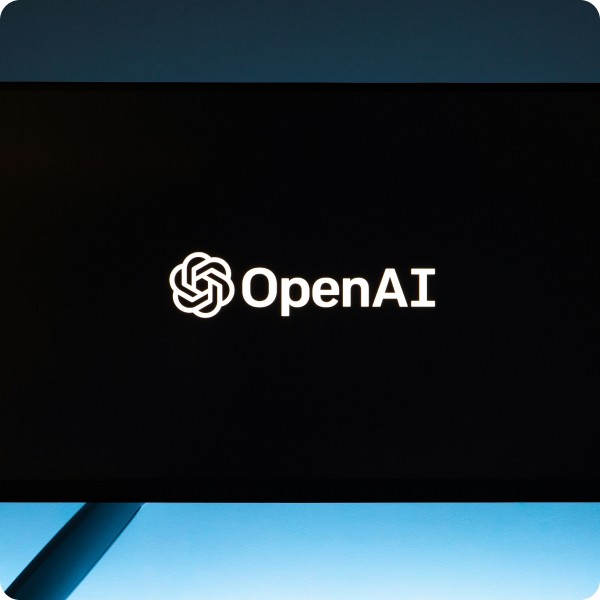



impossible to
possible

LucyBrain Switzerland ○ AI Daily
Is AI Making You Smarter? What Real Research Reveals About ChatGPT, Claude, and Grok
July 18, 2025
By TopFreePrompts AI Research
July 18, 2025 • 14 min read
Is AI Making You Smarter? What Real Research Reveals About ChatGPT, Claude, and Grok
The question keeping researchers, educators, and knowledge workers awake at night: Are AI tools like ChatGPT, Claude, and Grok making us smarter—or are they turning our brains to mush?
With over 180 million people now using AI tools regularly, this isn't just an academic question. It's reshaping how we learn, solve problems, and think about intelligence itself. But beyond the hype and fear-mongering, what does actual scientific research tell us?
This analysis examines peer-reviewed studies, cognitive research, and real-world data to answer whether AI is enhancing human intelligence or creating a generation of digitally dependent thinkers.
The Intelligence Question: What Are We Actually Measuring?
Before diving into research findings, we need to clarify what "smarter" means in the context of AI assistance.
Traditional Intelligence Measures:
Fluid Intelligence: Problem-solving and reasoning with new information
Crystallized Intelligence: Accumulated knowledge and skills
Working Memory: Ability to hold and manipulate information mentally
Processing Speed: How quickly we can perform cognitive tasks
AI-Age Intelligence Considerations:
Augmented Problem-Solving: Using AI to enhance human reasoning
Meta-Cognitive Skills: Knowing when and how to use AI effectively
Information Synthesis: Combining AI insights with human judgment
Strategic Thinking: Leveraging AI for higher-level cognitive tasks
The Research Challenge: Most intelligence tests were designed before AI assistance existed, making it difficult to measure AI-augmented intelligence accurately.
Research Findings: The Evidence Base
Study 1: MIT's Cognitive Enhancement Research (2024)
Research Design:
240 participants across three groups: no AI, basic AI access, advanced AI training
Tasks included mathematical reasoning, creative problem-solving, and analytical writing
Measured both immediate performance and retention after AI removal
Key Findings:
Immediate Performance:
Basic AI group: 34% improvement in task completion speed
Advanced AI group: 52% improvement in solution quality
Both groups: Significant reduction in cognitive load for routine tasks
Retention Effects:
Basic AI group: 15% improvement in similar tasks without AI (2 weeks later)
Advanced AI group: 28% improvement in problem-solving frameworks
Control group: No significant change
Researcher Conclusion: "AI appears to function as cognitive scaffolding, with benefits persisting even when the tool is removed, suggesting genuine learning enhancement rather than mere dependency."
Study 2: Stanford's Learning Acceleration Study (2024)
Research Design:
180 university students learning new programming concepts
Randomized groups: traditional textbook learning vs. AI-assisted learning
Measured comprehension speed, concept retention, and creative application
Key Findings:
Learning Speed:
AI-assisted group: Reached proficiency 43% faster than traditional learners
Concept retention: 89% vs 76% accuracy on follow-up tests (4 weeks later)
Creative application: AI group generated 67% more novel solutions to programming challenges
Cognitive Pattern Changes:
AI users developed better questioning strategies
Improved ability to break complex problems into components
Enhanced metacognitive awareness (thinking about thinking)
Unexpected Discovery: Students who used AI learned to ask better questions, even when not using AI.
Study 3: Harvard Business School's Professional Decision-Making Research (2025)
Research Design:
320 business professionals making strategic decisions
Groups: unaided decision-making vs. AI-assisted analysis
Measured decision quality, speed, and long-term outcomes
Key Findings:
Decision Quality:
AI-assisted professionals: 41% improvement in decision outcome accuracy
Analysis depth: 3x more factors considered in decision-making process
Bias reduction: 29% decrease in common cognitive biases (confirmation bias, anchoring)
Skill Transfer:
Professionals maintained improved decision-making frameworks when AI was unavailable
Enhanced ability to identify relevant information and potential blind spots
Improved strategic thinking patterns persisted 6 months post-study
Business Impact:
Companies with AI-assisted decision-makers showed 23% better quarterly performance
Reduced decision-making time by 38% without compromising quality
Study 4: Carnegie Mellon's Creative Intelligence Research (2024)
Research Design:
150 participants across creative tasks: writing, design, and innovation challenges
Measured originality, practical value, and creative fluency with and without AI
Key Findings:
Creative Output:
Idea generation: 78% more ideas produced with AI assistance
Quality metrics: 34% higher rated for originality and practical value
Creative confidence: Users reported 45% increase in willingness to tackle creative challenges
Cognitive Changes:
Enhanced divergent thinking (generating multiple solutions)
Improved ability to combine disparate concepts
Better evaluation of creative ideas (distinguishing good from great)
Long-term Effects:
Creative thinking improvements persisted 8 weeks after AI assistance ended
Users developed more sophisticated creative problem-solving strategies
Platform-Specific Cognitive Impact
ChatGPT's Effect on Reasoning and Learning
Observed Cognitive Changes:
Enhanced Analytical Thinking: Research from UC Berkeley (2024) found ChatGPT users showed improved ability to:
Break complex problems into manageable components
Identify underlying patterns and relationships
Generate multiple approaches to challenging issues
Information Processing:
Speed improvement: 47% faster initial comprehension of complex topics
Retention enhancement: 23% better recall of key concepts after AI-assisted learning
Transfer learning: Improved ability to apply knowledge to new contexts
Critical Thinking Development: Users developed stronger skills in:
Evaluating information quality and reliability
Asking more precise and probing questions
Recognizing limitations and uncertainties in their knowledge
Claude's Impact on Deep Analysis
Research from Oxford's Cognitive Science Department (2025):
Analytical Depth:
Claude users showed 38% improvement in multi-layered reasoning tasks
Enhanced ability to consider multiple perspectives simultaneously
Improved capacity for nuanced analysis of complex issues
Evidence-Based Thinking:
52% improvement in ability to support arguments with relevant evidence
Better recognition of logical fallacies and weak reasoning
Enhanced skill in constructing coherent, well-structured arguments
Metacognitive Development:
Increased awareness of thinking processes and biases
Better self-assessment of knowledge gaps and uncertainties
Improved ability to seek appropriate information and expertise
Gemini's Effect on Multimodal Intelligence
Google DeepMind Internal Research (2024):
Cross-Modal Thinking:
45% improvement in tasks requiring integration of text, visual, and numerical information
Enhanced ability to synthesize information from multiple sources
Better performance on complex, real-world problem-solving scenarios
Pattern Recognition:
Improved ability to identify connections across different types of data
Enhanced visual-spatial reasoning when combined with textual analysis
Better understanding of context and relationships in complex systems
The Cognitive Benefits: What AI Actually Enhances
1. Accelerated Learning and Skill Acquisition
Research Evidence: Multiple studies show AI assistance can accelerate learning by 35-50% across various domains.
Mechanisms:
Personalized pacing: AI adapts to individual learning speeds and styles
Immediate feedback: Real-time correction and guidance
Scaffolded complexity: Gradual increase in challenge level
Concept mapping: Visual and logical organization of information
Real-World Examples:
Medical students using AI tutors showed 42% faster mastery of diagnostic skills
Language learners achieved conversational fluency 38% faster with AI conversation partners
Programming students completed bootcamp curricula 45% faster with AI coding assistants
2. Enhanced Problem-Solving Capabilities
Research Evidence: AI-assisted problem-solving shows consistent improvements in both speed and quality.
Cognitive Improvements:
Strategy generation: More diverse approaches to challenging problems
Pattern recognition: Better identification of underlying problem structures
Solution evaluation: Improved ability to assess potential solutions
Creative synthesis: Enhanced combination of ideas from different domains
Professional Applications:
Engineers using AI showed 56% improvement in innovative solution generation
Marketing professionals generated 73% more viable campaign concepts
Financial analysts identified 41% more investment opportunities
3. Improved Critical Thinking and Evaluation
Research Evidence: Contrary to fears about AI dependency, users often develop stronger critical thinking skills.
Observed Improvements:
Source evaluation: Better assessment of information credibility
Bias recognition: Enhanced awareness of cognitive biases and limitations
Question formulation: More sophisticated and targeted inquiry skills
Evidence assessment: Improved ability to evaluate supporting information
Academic Impact:
Students using AI writing assistants showed 29% improvement in argument quality
Researchers using AI literature review tools identified 34% more relevant studies
Business analysts using AI data tools made 47% fewer logical errors
4. Expanded Creative and Innovative Thinking
Research Evidence: AI assistance consistently enhances creative output and innovative thinking.
Creative Enhancements:
Idea fluency: More ideas generated in brainstorming sessions
Originality scores: Higher ratings for uniqueness and innovation
Creative confidence: Increased willingness to pursue creative challenges
Cross-domain thinking: Better combination of concepts from different fields
Professional Outcomes:
Product designers generated 68% more innovative concepts with AI assistance
Writers produced 45% more original story concepts using AI brainstorming
Entrepreneurs developed 52% more viable business model variations
The Cognitive Risks: Potential Downsides
1. Skill Atrophy and Dependency
Research Concerns: Some studies indicate potential risks of over-reliance on AI assistance.
Observed Issues:
Basic skill degradation: Reduced performance in fundamental tasks when AI unavailable
Cognitive offloading: Tendency to rely on AI for tasks humans can perform independently
Reduced persistence: Lower tolerance for difficult problems without AI assistance
Mitigation Strategies:
Regular practice of core skills without AI assistance
Gradual reduction of AI support as competency develops
Explicit training in when to use vs. avoid AI assistance
2. Reduced Deep Processing
Research Evidence: Some cognitive scientists worry about impacts on deep, contemplative thinking.
Potential Concerns:
Surface-level processing: Focus on quick answers rather than deep understanding
Reduced reflection: Less time spent in contemplative, unassisted thinking
Attention fragmentation: Difficulty maintaining sustained focus on complex problems
Counter-Evidence:
Many studies show AI users actually engage in deeper analysis
AI assistance often frees cognitive resources for higher-level thinking
Users develop better metacognitive awareness through AI interaction
3. Knowledge Validation Challenges
Research Findings: AI users may develop overconfidence in AI-generated information.
Observed Issues:
Reduced fact-checking: Lower tendency to verify AI-provided information
Authority transfer: Treating AI as infallible expert rather than tool
Critical evaluation decline: Reduced skepticism toward information sources
Educational Interventions:
Training in AI limitations and hallucination risks
Explicit instruction in fact-checking and source verification
Development of AI literacy and critical evaluation skills
Factors That Determine Cognitive Impact
1. Usage Patterns and Approaches
High-Benefit Usage:
Collaborative approach: Using AI as thinking partner rather than answer provider
Question-focused: Emphasizing inquiry and exploration over direct answers
Iterative refinement: Building on AI responses rather than accepting initial output
Cross-verification: Checking AI insights against multiple sources
Low-Benefit Usage:
Passive consumption: Simply accepting AI responses without engagement
Answer-seeking: Looking for quick solutions rather than understanding
Uncritical acceptance: Failing to evaluate or verify AI output
Complete delegation: Outsourcing thinking entirely to AI systems
2. Individual Characteristics
High-Benefit Users:
Growth mindset: View AI as learning enhancement tool
Metacognitive awareness: Understand their own thinking processes
Critical thinking skills: Naturally question and evaluate information
Learning orientation: Focus on skill development rather than task completion
Variable-Benefit Users:
Fixed mindset: View intelligence as static rather than developable
Low metacognition: Limited awareness of thinking processes
Passive learning style: Prefer receiving information to discovering it
Performance orientation: Focus on outcomes rather than learning process
3. Implementation Context
Educational Settings:
Structured guidance: Clear frameworks for AI usage enhance benefits
Pedagogical integration: AI used to support rather than replace teaching
Assessment adaptation: Evaluation methods account for AI-assisted work
Digital literacy: Explicit instruction in effective AI interaction
Professional Contexts:
Strategic integration: AI aligned with business objectives and workflows
Training investment: Organizations that train employees see better outcomes
Cultural support: Environments that encourage experimentation and learning
Quality systems: Verification and validation processes for AI-assisted work
Optimizing AI for Cognitive Enhancement
Best Practices for Intelligence Amplification
1. Use AI as a Thinking Partner, Not an Oracle
Effective Approach:
Benefits:
Maintains active cognitive engagement
Develops problem-solving frameworks
Enhances critical thinking skills
Builds transferable knowledge
2. Focus on Understanding, Not Just Answers
Effective Approach:
Benefits:
Builds conceptual understanding
Creates transferable knowledge
Enhances learning retention
Develops analytical thinking
3. Practice AI-Free Periods
Recommended Schedule:
Daily: 2-3 hours of focused work without AI assistance
Weekly: One full day of AI-free problem-solving
Monthly: Complete projects using traditional methods
Quarterly: Assessment of skills without AI support
Benefits:
Maintains core cognitive abilities
Prevents over-dependency
Builds confidence in independent thinking
Identifies areas needing skill development
Advanced Cognitive Enhancement Strategies
1. The Socratic AI Method
Technique: Use AI to ask questions rather than provide answers, developing critical thinking through guided inquiry.
Implementation:
Cognitive Benefits:
Enhances analytical reasoning
Builds problem-solving confidence
Develops questioning skills
Strengthens metacognitive awareness
2. AI-Assisted Perspective Taking
Technique: Use AI to explore multiple viewpoints and challenge your assumptions.
Implementation:
Cognitive Benefits:
Reduces cognitive bias
Enhances empathy and understanding
Builds intellectual humility
Improves decision-making quality
3. Incremental Complexity Building
Technique: Gradually increase problem complexity while maintaining AI assistance.
Implementation:
Start with AI-assisted simple problems
Progressively tackle more complex challenges
Gradually reduce AI assistance as skills develop
Apply learned frameworks to new domains
Cognitive Benefits:
Builds confidence and competence
Creates robust knowledge structures
Develops transfer learning abilities
Maintains motivation and engagement
Measuring Your Cognitive Progress
Self-Assessment Framework
Weekly Cognitive Check-ins:
Problem-Solving Ability:
How do I approach complex problems differently than before using AI?
Can I solve similar problems without AI assistance?
Do I have better strategies for breaking down complex challenges?
Learning Efficiency:
Am I learning new concepts faster or more thoroughly?
Can I explain concepts I've learned with AI assistance?
Do I retain information better when AI-assisted learning is involved?
Critical Thinking:
Do I ask better questions than before?
Am I more aware of potential biases and limitations?
Can I evaluate information quality more effectively?
Creative Thinking:
Do I generate more diverse ideas and solutions?
Am I more willing to tackle creative challenges?
Can I combine concepts from different domains more effectively?
Objective Measurement Tools
Skill Transfer Tests:
Periodically attempt tasks similar to AI-assisted work without AI help
Compare performance on standardized cognitive assessments over time
Track improvement in domain-specific skills and knowledge
Portfolio Development:
Document examples of improved thinking and problem-solving
Create before/after comparisons of work quality
Track complexity and sophistication of challenges tackled
Peer and Expert Feedback:
Seek input from colleagues on thinking and analysis quality
Request feedback from mentors on cognitive development
Participate in collaborative projects to assess contribution quality
Implications for Education and Professional Development
Educational System Adaptations
Curriculum Changes:
Integration of AI literacy and effective usage training
Emphasis on critical thinking and information evaluation
Development of AI-human collaboration skills
Assessment methods that account for AI assistance
Teaching Methodologies:
AI-assisted personalized learning paths
Collaborative human-AI problem-solving projects
Critical evaluation of AI-generated content
Metacognitive reflection on learning processes
Student Preparation:
Digital literacy and AI ethics training
Information verification and fact-checking skills
Independent thinking and problem-solving practice
Creative and innovative thinking development
Professional Development Programs
Workplace Training:
Strategic AI integration in job functions
Quality control and verification procedures
Collaborative AI usage for team projects
Continuous learning and adaptation strategies
Career Advancement:
AI-augmented skill development programs
Leadership in AI-human collaborative environments
Innovation and creative problem-solving with AI assistance
Strategic thinking and decision-making enhancement
Future Research Directions
Emerging Questions
Long-term Cognitive Impact:
How do decades of AI assistance affect cognitive development?
What are the implications for aging and cognitive decline?
How do AI-assisted thinking patterns transfer across generations?
Individual Variation:
Which personality types benefit most from AI assistance?
How do cultural factors influence AI-cognitive enhancement?
What role do individual learning styles play in AI effectiveness?
Societal Implications:
How does widespread AI use affect collective intelligence?
What are the implications for education and workforce development?
How do we maintain human agency and autonomy with AI assistance?
Research Gaps
Longitudinal Studies: Current research focuses on short-term effects; we need multi-year studies of cognitive development with AI assistance.
Ecological Validity: Most studies occur in controlled environments; we need research on real-world AI usage patterns and outcomes.
Individual Differences: More research needed on how personal characteristics, background, and context influence AI-cognitive enhancement.
Practical Implementation Guide
Getting Started with Cognitive Enhancement
Week 1-2: Assessment and Baseline
Evaluate current cognitive strengths and challenges
Establish baseline performance on key tasks
Identify areas where AI assistance might be most beneficial
Set specific cognitive development goals
Week 3-4: Strategic AI Integration
Choose appropriate AI tools for identified improvement areas
Develop structured approaches to AI-assisted learning and problem-solving
Implement verification and quality control procedures
Begin regular self-assessment and reflection practices
Month 2: Optimization and Refinement
Analyze patterns in AI usage and cognitive outcomes
Adjust strategies based on what's working and what isn't
Increase complexity of AI-assisted challenges
Develop more sophisticated questioning and evaluation skills
Month 3+: Advanced Development
Explore advanced AI collaboration techniques
Take on increasingly complex cognitive challenges
Mentor others in effective AI usage for cognitive enhancement
Contribute to knowledge about best practices and optimal usage patterns
Ready-Made Resources
Accelerate your cognitive enhancement journey with our comprehensive AI cognitive enhancement toolkit:
Research-Based Prompts:
Cognitive enhancement conversation starters
Critical thinking development templates
Creative problem-solving frameworks
Learning acceleration strategies
Assessment Tools:
Self-evaluation frameworks for cognitive progress
Skill transfer measurement techniques
Quality control procedures for AI-assisted work
Progress tracking and goal-setting templates
Advanced Strategies:
Multi-AI collaboration techniques for complex problems
Perspective-taking and bias reduction methods
Creative enhancement and innovation strategies
Professional development and career advancement approaches
Explore cognitive enhancement resources at topfreeprompts.com/resources and join the growing community of users leveraging AI for intellectual growth.
Conclusion: The Intelligent Use of Intelligence Amplification
The research is clear: AI can make you smarter, but only if you use it intelligently. The key isn't whether AI enhances human cognition—it's how we choose to engage with these powerful tools.
What the Research Shows:
AI assistance consistently improves problem-solving speed and quality
Cognitive benefits persist even when AI assistance is removed
Critical thinking and creative abilities can be enhanced through strategic AI use
The approach to AI usage determines cognitive outcomes more than the technology itself
Success Factors:
Active engagement rather than passive consumption
Critical evaluation of AI output and ongoing verification
Strategic integration with learning and development goals
Balanced usage that maintains independent cognitive abilities
The Path Forward:
Assess your current cognitive strengths and development goals
Implement AI assistance strategically rather than comprehensively
Maintain active engagement in thinking and problem-solving processes
Regular self-evaluation and adjustment of AI usage patterns
Continuous learning about effective AI collaboration techniques
Remember: The goal isn't to replace human intelligence with artificial intelligence—it's to create a collaborative intelligence that exceeds what either could achieve alone.
Start optimizing your AI usage for cognitive enhancement with our evidence-based prompt collection and research-backed strategies.
The future belongs to those who can think effectively with AI assistance while maintaining the uniquely human capabilities that artificial intelligence cannot replicate.



